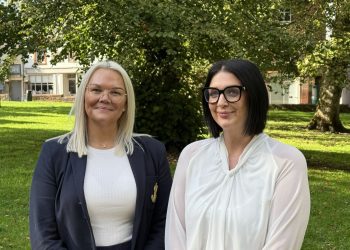Expert’s plea in light of ‘wicked’ Cumbria doctor’s Will abuse
October 26th 2018A LEGAL expert has spoken about the importance of ensuring wills are properly drafted after a doctor was jailed for defrauding a wealthy widow.
David Tew today issued a ‘do it right’ plea following the case of Zholia Alemi, who was last week imprisoned for five years after faking the will of elderly Gillian Belham.
Alemi had been asked to rule on the wellbeing of dementia sufferer Mrs Belham. But within four months of meeting her, she had redrafted Mrs Belham’s will and fraudulently applied for power of attorney.
The case underlines the importance of having a legal professional involved in the creation and ongoing review of a will, said David, who works for award-winning Cumbria-based legal firm, Cartmell Shepherd.
He added: “This case underlines the importance of making sure you go to a solicitor to prepare your will. If you do that there will be a file of evidence of your intentions, and showing the background to the matter so that that protects you and your beneficiaries in the event of something untoward like this happening.
“You would not get the same protection from either making your will from a DIY kit or going to someone who prepares wills but is not a qualified solicitor.
“From a contentious probate angle in terms of challenging wills, people would come to us, perhaps as disappointed beneficiaries of an estate who realise they have not been included within a will, when perhaps they might have expected to be.
“As contentious probate solicitors we may be instructed to investigate that. One of the tools at our disposal would be to obtain the will file and review it, so we can deliver a thorough analysis of whether there is anything untoward, or whether the will is genuine.
“That brings us back to my original point that instructing a solicitor to prepare your will ensures the correct safeguards are in place, should there be an issue further down the line.
During the court case, Jurors heard Alemi met Mrs Belham, now aged 87, at a Workington dementia clinic in February 2016.
In addition to redrafting the will, Alemi, of Scaw Road, High Harrington, also stole bank cards and tricked two women into providing signatures they thought would be used for another purpose.
Jurors heard childless Mrs Belham’s extended family and a number of charities were “entirely written out” of the bogus will, with Alemi standing to inherit a bungalow which Mrs Belham owned and £300,000.
Said David: “It is so important to get your will right. Saving a few pounds now could literally cost your beneficiaries thousands if there are problems later down the line. Having the peace of mind it has been done properly, will mean no niggling doubts later in life. The investment is most certainly worth it.”
James Higgins 32 West








